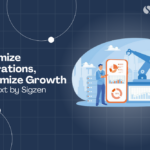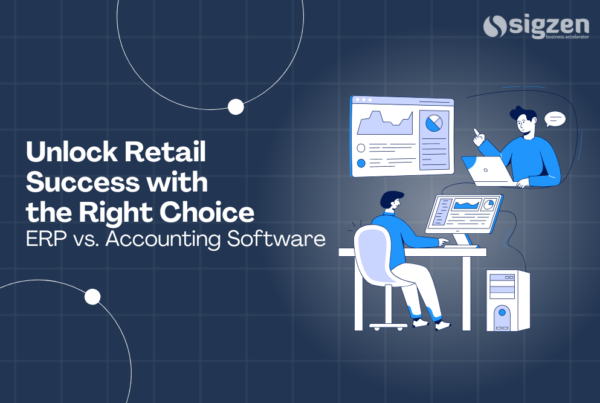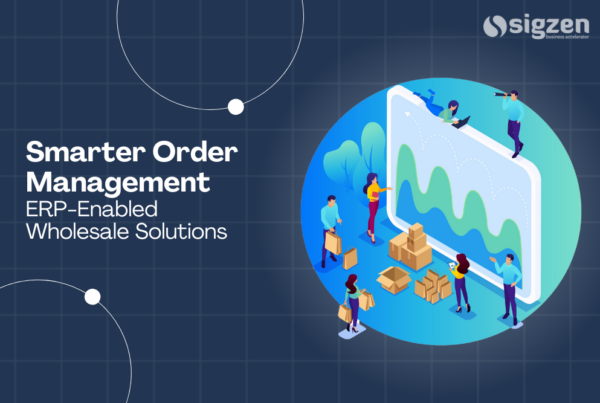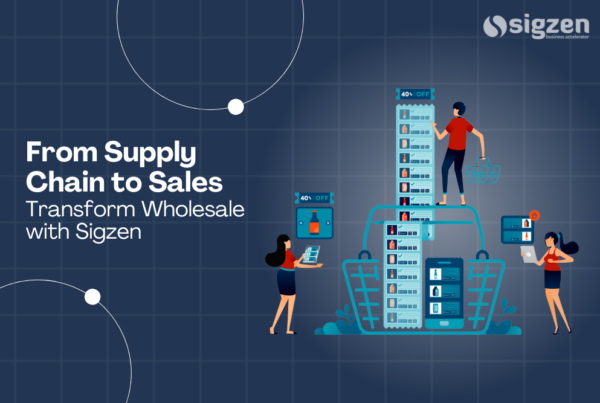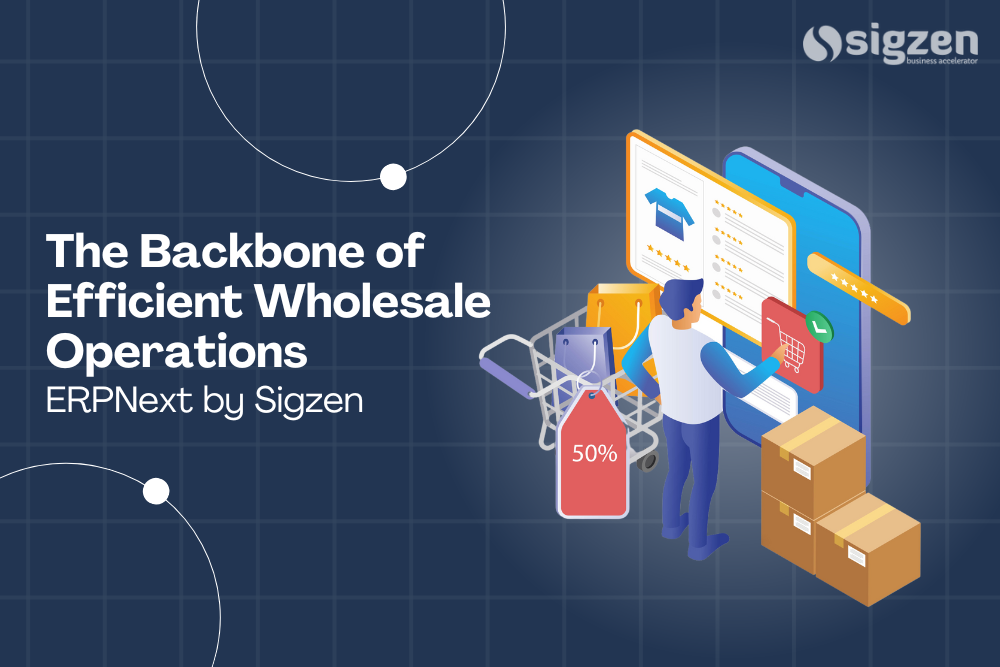
Introduction: A New Era for Wholesale and Manufacturing
Wholesale and manufacturing industries are evolving rapidly, driven by increasing consumer demands, supply chain complexities, and the need for operational efficiency. In such a landscape, ERP for Manufacturing stands out as a transformative tool, enabling businesses to achieve streamlined workflows, precise stock management, and competitive advantages.
Whether it’s managing multi-location warehouses, automating inventory processes, or integrating advanced analytics, ERP systems are the cornerstone of operational excellence. This article delves into how ERP software optimizes stock and warehouse management for manufacturing, leverages automated warehouse systems, and ensures long-term sustainability.
The Role of ERP in Manufacturing and Wholesale
ERP software acts as a centralized platform that connects all critical operations within manufacturing and wholesale businesses. From procurement to distribution, ERP streamlines every process while offering real-time insights. Key roles include:
1. Integrated Stock and Warehouse Management
Efficient stock management is vital for manufacturing success. An ERP system offers:
- Real-Time Inventory Tracking: Monitor stock levels, locations, and movements with precision.
- Automated Reorder Alerts: Prevent stockouts with automated notifications when inventory levels fall below thresholds.
- Lot and Serial Number Tracking: Ensure product traceability for compliance and quality assurance.
Explore ERPNext’s Inventory and Stock Module for in-depth insights.
2. Warehouse Automation
Modern ERP systems enable warehouse automation, transforming traditionally manual processes into highly efficient workflows:
- Robotics Integration: Sync ERP with automated warehouse systems to streamline picking, packing, and sorting.
- Barcode Scanning: Reduce errors with barcode and RFID integration for faster inventory updates.
- Optimized Layouts: Use data analytics to design warehouse layouts that minimize travel time and maximize space utilization.
3. Demand Forecasting
Using AI-driven analytics, ERP systems help businesses predict demand trends, ensuring optimal stock levels and reducing excess inventory. This is particularly critical for manufacturers dealing with seasonal demand variations.
4. Seamless Procurement and Sales Cycles
ERP systems streamline procurement and sales processes by integrating them with inventory and financial data:
- Automate purchase orders based on inventory levels.
- Sync sales orders with stock availability to improve fulfillment rates.
- Track supplier performance and optimize sourcing strategies.
For more details, visit ERPNext’s Sales Cycle Module and Purchase Cycle Module.
Benefits of ERP Software for Manufacturing and Wholesale
1. Improved Stock and Warehouse Management
ERP software ensures that stock levels are accurately monitored and efficiently managed. Key benefits include:
- Reduced holding costs through optimized inventory levels.
- Faster order fulfillment with automated workflows.
- Accurate demand forecasting, minimizing waste.
2. Enhanced Visibility Across Operations
By centralizing data, ERP provides a unified view of manufacturing, inventory, and financial operations, enabling better decision-making.
3. Cost Reduction
Automation reduces manual labor, minimizes errors, and prevents unnecessary expenditures, resulting in significant cost savings.
4. Compliance and Quality Assurance
ERP systems ensure that products meet regulatory standards by tracking quality checks and maintaining detailed records.
5. Scalability
As businesses grow, ERP solutions can scale to manage larger operations, more SKUs, and additional warehouses.
ERP Features for Stock and Warehouse Management
1. Advanced Inventory Tracking
- Real-time updates on stock movements and quantities.
- Integration with IoT devices for real-time condition monitoring.
2. Warehouse Management Solutions
- Automated picking and sorting systems.
- Configurable storage locations to optimize space.
3. Automated Reporting
- Generate inventory, sales, and procurement reports instantly.
- Leverage data for insights into operational bottlenecks.
4. Integration with Other Modules
ERP systems integrate seamlessly with accounting, HR, and CRM modules for holistic operational control. Learn more about ERPNext modules.
How Warehouse Automation Transforms Manufacturing
Warehouse automation is revolutionizing the manufacturing sector by reducing errors, improving speed, and lowering costs. ERP systems play a pivotal role in this transformation by:
- Automating Stock Replenishment: Automatically reorder raw materials based on production schedules.
- Enhancing Accuracy: Use RFID technology to eliminate human errors in inventory updates.
- Reducing Turnaround Times: Streamlined workflows ensure faster order processing and dispatch.
For example, a manufacturer implementing ERP-enabled automated warehouse systems reported a 30% reduction in operational costs and a 40% improvement in order accuracy.
Case Study: ERP for Wholesale Excellence
A mid-sized wholesale company struggled with inconsistent stock levels and frequent delays in order fulfillment. After implementing an ERP solution from Sigzen.com, they achieved:
- 30% Reduction in Inventory Holding Costs: Optimized stock levels using real-time data insights.
- 50% Faster Order Fulfillment: Automated workflows and better stock visibility.
- Improved Customer Satisfaction: On-time deliveries and fewer stockouts.
Best Practices for Implementing ERP in Manufacturing and Wholesale
- Define Goals and Objectives: Clearly outline what you aim to achieve, such as better stock management or faster order processing.
- Choose the Right ERP Solution: Opt for a solution like Sigzen’s ERPNext offerings tailored to your industry needs.
- Train Your Team: Ensure employees understand how to use the ERP system effectively.
- Monitor Performance: Regularly analyze ERP reports to identify areas for improvement.
- Integrate Automation: Leverage automated systems for maximum efficiency.
Challenges and How ERP Solves Them
1. Inefficient Inventory Management
Challenge: Overstocking or stockouts disrupt operations.
Solution: ERP systems provide real-time visibility, ensuring optimal inventory levels.
2. Manual Errors in Stock Recording
Challenge: Errors in manual data entry lead to inaccuracies.
Solution: Automate inventory updates with barcode and RFID integrations.
3. Warehouse Inefficiencies
Challenge: Poor layouts and slow processes reduce productivity.
Solution: Use ERP data analytics to optimize layouts and workflows.
Conclusion: The Competitive Advantage of ERP for Manufacturing
For manufacturers and wholesalers, achieving operational excellence requires more than just hard work; it demands the right tools. ERP software, with its robust stock and warehouse management capabilities, is essential for driving efficiency, reducing costs, and staying ahead of the competition. Solutions from Sigzen.com empower businesses to streamline processes, improve decision-making, and scale seamlessly.
Take the next step in operational excellence. Request a demo of Sigzen’s ERP solutions today!
